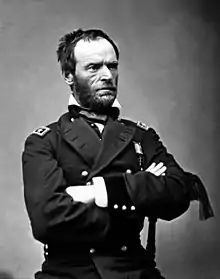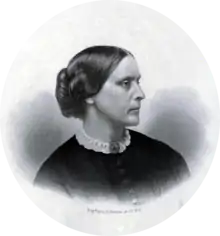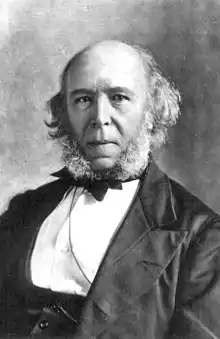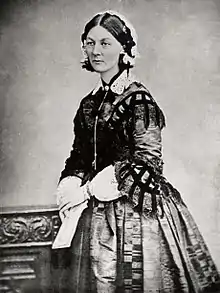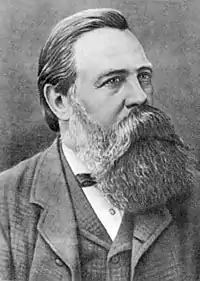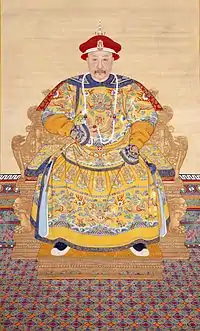1820
1820 (MDCCCXX) was a leap year starting on Saturday of the Gregorian calendar and a leap year starting on Thursday of the Julian calendar, the 1820th year of the Common Era (CE) and Anno Domini (AD) designations, the 820th year of the 2nd millennium, the 20th year of the 19th century, and the 1st year of the 1820s decade. As of the start of 1820, the Gregorian calendar was 12 days ahead of the Julian calendar, which remained in localized use until 1923.
| Millennium: | 2nd millennium |
|---|---|
| Centuries: | |
| Decades: | |
| Years: |
| 1820 in topic |
|---|
| Humanities |
|
Archaeology – Architecture – Art Film - Literature – Music - (jazz) |
| By country |
| Australia – Belgium – Brazil – Bulgaria – Canada – Denmark – France – Germany – Mexico – New Zealand – Norway – Philippines – Portugal – Russia – South Africa – Spain – Sweden – United Kingdom – United States – Venezuela |
| Other topics |
| Rail transport – Science – Sports |
| Lists of leaders |
| Sovereign states – State leaders – Territorial governors – Religious leaders |
| Birth and death categories |
| Births – Deaths |
| Establishments and disestablishments categories |
| Establishments – Disestablishments |
| Works category |
| Works |
| Gregorian calendar | 1820 MDCCCXX |
| Ab urbe condita | 2573 |
| Armenian calendar | 1269 ԹՎ ՌՄԿԹ |
| Assyrian calendar | 6570 |
| Balinese saka calendar | 1741–1742 |
| Bengali calendar | 1227 |
| Berber calendar | 2770 |
| British Regnal year | 60 Geo. 3 – 1 Geo. 4 |
| Buddhist calendar | 2364 |
| Burmese calendar | 1182 |
| Byzantine calendar | 7328–7329 |
| Chinese calendar | 己卯年 (Earth Rabbit) 4516 or 4456 — to — 庚辰年 (Metal Dragon) 4517 or 4457 |
| Coptic calendar | 1536–1537 |
| Discordian calendar | 2986 |
| Ethiopian calendar | 1812–1813 |
| Hebrew calendar | 5580–5581 |
| Hindu calendars | |
| - Vikram Samvat | 1876–1877 |
| - Shaka Samvat | 1741–1742 |
| - Kali Yuga | 4920–4921 |
| Holocene calendar | 11820 |
| Igbo calendar | 820–821 |
| Iranian calendar | 1198–1199 |
| Islamic calendar | 1235–1236 |
| Japanese calendar | Bunsei 3 (文政3年) |
| Javanese calendar | 1747–1748 |
| Julian calendar | Gregorian minus 12 days |
| Korean calendar | 4153 |
| Minguo calendar | 92 before ROC 民前92年 |
| Nanakshahi calendar | 352 |
| Thai solar calendar | 2362–2363 |
| Tibetan calendar | 阴土兔年 (female Earth-Rabbit) 1946 or 1565 or 793 — to — 阳金龙年 (male Iron-Dragon) 1947 or 1566 or 794 |
| Wikimedia Commons has media related to 1820. |
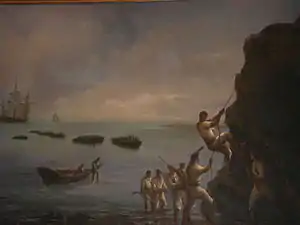
February 6: Capture of Valdivia
Events
January–March
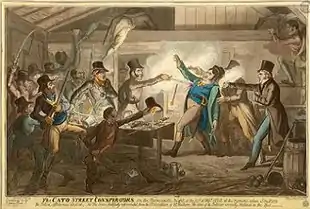
February 23: Cato Street Conspiracy
- January 1 – Trienio Liberal in Spain: A constitutionalist military insurrection at Cádiz leads to the summoning of the Spanish Parliament (March 7).
- January 20 – Indiana University Bloomington is founded as the Indiana State Seminary (renamed Indiana College in 1846).
- January 27 (NS) – History of Antarctica: An Imperial Russian Navy expedition, led by Fabian Gottlieb von Bellingshausen in Vostok with Mikhail Petrovich Lazarev, sights the Antarctic ice sheet.[1]
- January 29 – George IV of the United Kingdom ascends the throne, on the death at Windsor Castle of his father George III (after 59 years on the throne), ending the period known as the British Regency. There will be a gap of 21 years before the title Prince of Wales is next used.
- January 30 – History of Antarctica: Irish Royal Navy captain Edward Bransfield lands on the mainland of Antarctica.[1]
- February 6
- Capture of Valdivia: Lord Cochrane occupies Valdivia in the name of the Republic of Chile.
- 86 free African American colonists sail from New York City to Freetown, Sierra Leone.
- February 14 – Minh Mạng starts to rule in Vietnam.
- February 20 – A revolt begins in Santa María Chiquimula, Totonicapán department of Guatemala.
- February 23 – Cato Street Conspiracy: A plot to murder the Cabinet of the United Kingdom is exposed in England; the principals are the last to suffer decapitation, following their hanging for treason outside Newgate Prison in London, on May 1.
- March 3 – A fire in Guangzhou (Canton) burns 15,000 houses and kills an undetermined number of people.[2]
- March 3 and 6 – Slavery in the United States: The Missouri Compromise becomes law, allowing admission of Missouri and Maine, slave and free states respectively, as U.S. states.
- March 9 – King Ferdinand VII of Spain accepts the new constitution, beginning the Trienio Liberal.
- March 10 – The Royal Astronomical Society is founded in London.
- March 15 – Maine is admitted as the 23rd U.S. state.
April–June
- April – Hans Christian Ørsted discovers the relationship between electricity and magnetism.
- April 1 – A proclamation, signed "By order of the Committee of Organisation for forming a Provisional Government", begins the "Radical War" in Scotland.
- April 8 – The statue of the Venus de Milo (Aphrodite of Milos, c.150 BC-125 BC) is discovered on the Greek island of Milos, by a peasant named Yorgos Kentrotas.
- April 12 – Alexander Ypsilantis is declared leader of Filiki Eteria, a secret organization to overthrow Ottoman rule over Greece.
- April 15 – King William I of Württemberg marries his cousin, Pauline Therese, in Stuttgart.
- May 1 – The last hanging, drawing and quartering in Britain is meted out to the Cato Street conspirators for treason (only hanged and beheaded).
- May 11 – HMS Beagle (the ship that will later take young Charles Darwin on his scientific voyage) is launched at Woolwich Dockyard.
- May 20 – John Stuart Mill sets out on his formative boyhood trip to France.
- June 5 – Caroline of Brunswick, the estranged wife of King George IV of the United Kingdom, returns to England after six years abroad in Italy, where she had been carrying on an affair; since ascending the throne in January, the King has sought to receive his government's approval for a divorce.[3]
- June 10 – Sir Thomas Munro is appointed as the British colonial Governor of the Madras Presidency, which encompasses most of southern India.[4]
- June 12 – Élie Decazes, leader of the opposition in France's Chamber of Deputies, successfully introduces the "Law of the Double Vote", a proposal to add to the 258 existing legislators by creating 172 seats that would be "selected by special electoral colleges" made up of the wealthiest 25% of voters in each of France's departments.[5]
- June 12 – Delegates in St. Louis, Missouri Territory approve a proposed state constitution, proclaiming that they "do mutually agree to form and establish a free and independent republic, by the name of "The State of Missouri".[6]
- June 29 – The cause of action that will lead to the U.S. Supreme Court case known simply as The Antelope arises, when a U.S. Treasury cutter captures a ship of the same name, which is transporting 281 Africans who had been captured as slaves, in violation of the 1819 U.S. law prohibiting the slave trade.[7]
July–September
- July – A revolt under Guglielmo Pepe forces Ferdinand I of the Two Sicilies to sign a constitution modeled on the Spanish Constitution of 1812.
- July 20 – Saint Cronan's Boys' National School opens in Bray, Co. Wicklow, Ireland under the title Bray Male School. It is the oldest school in Bray, and its notable pupils will include President of Ireland Cearbhall Ó Dálaigh.
- July 26 – Union Chain Bridge, a wrought iron suspension bridge designed by Captain Samuel Brown, opens across the River Tweed, between England and Scotland. Its span of 449 ft (137 m) is the world's longest for a vehicular bridge at this time.[8]
- July 31 – A fire breaks out in the wine depot at the Bercy section of Paris. It is reported later that "In the absence of water to supply the engines, and attempt was made to extinguish the flames with wine— of which a lake of 50 ft. square and more than a foot deep was formed; but the fire continued to rage, as well it might, being supplied by alcohol, and great destruction of property resulted.[2]
- August 24 – A Constitutionalist insurrection breaks out at Oporto, Portugal.
- September 2 – The Daoguang Emperor succeeds the throne of the Qing Dynasty in China.
- September 15 – Revolution breaks out in Lisbon, against John VI of Portugal.
October–December
- October 9 – Guayaquil declares independence from Spain.
- October 25 – November 20 – The Congress of Troppau (Opava) is convened between the rulers of Russia, Austria and Prussia.
- November 17 - Captain Nathaniel Palmer becomes the first American to see Antarctica. (The Palmer Peninsula is later named after him.)
- November 20 – After the sinking of the American whaleship Essex of Nantucket, by a sperm whale in the southern Pacific Ocean, the survivors are left afloat in three small whaleboats. They eventually resort, by common consent, to cannibalism to allow some to survive.
- December 3 – U.S. presidential election, 1820: James Monroe is re-elected, virtually unopposed.
- December 20 – The town of Tuscumbia, Alabama, is incorporated.
Date unknown
- Early Spring – Joseph Smith, founder of the Latter Day Saint movement, received his First Vision in Palmyra, New York. (Possibly March 26[9])
- The Argentine Confederation (Argentina) establishes a penal colony in the Falkland Islands.
- Robert Owen devises the labour voucher.
- Mount Rainier erupts over what is today Seattle.
- 18,957 black slaves leave Luanda, Angola.
- The 6th edition of the Encyclopædia Britannica appears.
- Construction work is completed on the Citadelle Laferrière in Haiti, the largest fortification in the Americas.
- Anchor coinage is issued for use in some British colonies.
Births
January–June
- January 10 – Louisa Lane Drew, actress, prominent theater manager, grandmother of the Barrymores (d. 1897)
- January 17 – Anne Brontë, English author (d. 1849)[10]
- January 20 – Alexandre-Émile Béguyer de Chancourtois, French chemist and mineralogist (d. 1886)
- January 31 – Concepción Arenal, Spanish feminist writer, activist (d. 1893)
- February 1 – George Hendric Houghton, American Protestant Episcopal clergyman (d. 1897)
- February 6 – Thomas C. Durant, American railroad financier (d. 1885)
- February 8 – William Tecumseh Sherman, American Civil War general (d. 1891)
- February 13 – James Geiss, English businessman (d. 1878)
- February 15
- Susan B. Anthony, American suffragist (d. 1906)
- Arvid Posse, 2nd Prime Minister of Sweden (d. 1901)
- February 17 – Henri Vieuxtemps, Belgian violinist, composer (d. 1881)
- February 28 – John Tenniel, English illustrator (d. 1914)
- March 2 – Eduard Douwes Dekker, Dutch writer (d. 1887)
- March 3 – Henry D. Cogswell, American temperance movement pioneer who endowed a number of Cogswell fountains (d. 1900)
- March 4 – Francesco Bentivegna, Italian revolutionary (d. 1856)
- March 9 – Samuel Blatchford, Associate Justice of the Supreme Court of the United States (d. 1893)
- March 17 – Martin Jenkins Crawford, American politician (d. 1883)
- March 20 – Alexandru Ioan Cuza, Romania's first reigning Domnitor (d. 1873)
- March 14 – Victor Emmanuel II of Italy (d. 1878)
- April 27 – Herbert Spencer, English philosopher (d. 1903)
- April 26 – Alice Cary, American poet, sister to Phoebe Cary (1824-1871) (d. 1871)
- May 5 – Elkanah Billings, Canadian paleontologist (d. 1876)
- May 12 – Florence Nightingale, English nurse (d. 1910)[11]
- May 23 – Lorenzo Sawyer, 9th Chief Justice of the Supreme Court of California (d. 1891)
- May 25 – François Claude du Barail, French general and Minister of War (d. 1902)
- May 27 – Mathilde Bonaparte, Italian princess (d. 1904)
July–December
- July 5 – William John Macquorn Rankine, Scottish physicist, engineer (d. 1872)
- July 9 – John Wright Oakes, landscape painter (d. 1887)
- July 22 – Oliver Mowat, Canadian lawyer, politician (d. 1903)
- July 23 – Julia Gardiner Tyler, First Lady of the United States (d. 1889)
- September 17
- Émile Augier, French dramatist (d. 1889)
- Earl van Dorn, American Confederate general (d. 1863)
- September 20 – John F. Reynolds, American general (d. 1863)
- September 27 – Wilhelm Siegmund Teuffel, German classical scholar (d. 1878)
- September 29 – Henri, Count of Chambord, claimant to the French throne (d. 1883)
- October 5 – David Wilber, American politician (d. 1890)
- October 6 – Jenny Lind, Swedish soprano (d. 1887)
- October 16 – Gillis Bildt, 5th Prime Minister of Sweden (d. 1894)
- October 20 – Benjamin F. Cheatham, Confederate general (d. 1886)
- November 23
- Isaac Todhunter, English mathematician (d. 1884)
- Ludwig von Hagn, German painter (d. 1898)
- November 28 – Friedrich Engels, German social philosopher (d. 1895)
- December 21 – William H. Osborn, American railroad executive (d. 1894)
Date unknown
- Song Qing, Chinese general (d. 1902)
Deaths
January–June
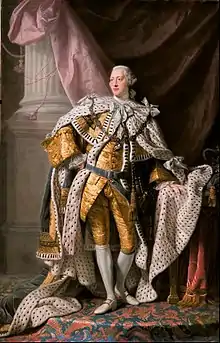
King George III
- January 17 – Daniel Albert Wyttenbach, Swiss-born academic (b. 1746)
- January 29 – King George III of the United Kingdom (b. 1738)
- February 5 – William Drennan, Irish physician, poet and radical politician (b. 1754)
- February 11 – Karl von Fischer, German architect (b. 1782)
- February 14 – Charles Ferdinand, Duke of Berry, French noble (stabbed) (b. 1778)
- March 11 – Benjamin West, Anglo-American painter of historical scenes (b. 1738)
- March 22 – Stephen Decatur, American sailor (b. 1779)
- April 8 – Thomas Douglas, 5th Earl of Selkirk, British noble (b. 1771)
- April 20 – James Morris III, Continental Army officer from Connecticut (b. 1752)
- May 30 – William Bradley, Britain's tallest ever man (b. 1787)
- June 6 – Henry Grattan, Irish politician (b. 1746)
- June 9 – Wilhelmina of Prussia, Princess of Orange (b. 1751)
- June 19 – Sir Joseph Banks, English naturalist, botanist (b. 1743)
- June 20 – Manuel Belgrano, Argentine politician, general in the Independence War (b. 1770)
July–December
- August 9 – Anders Sparrman, Swedish naturalist (b. 1748)
- August 12 – Manuel Lisa, Spanish-born American fur trader (b. 1772)
- September 2 – Jiaqing Emperor, Chinese emperor (b. 1760)
- September 3 – Benjamin Latrobe, English architect (b. 1764)
- September 4 – Timothy Brown, English banker, merchant and radical (b. 1743/1744)
- September 16 – Nguyễn Du, Vietnamese poet (b. 1766)
- September 18 – Mariana Joaquina Pereira Coutinho, Portuguese courtier, salonnière (b. 1748)
- September 26 – Daniel Boone, American pioneer (b. 1734)
- September 28 – Pedro Andrés del Alcázar, Spanish and later Chilean Army officer and war hero (b. 1752)
- September 29 – Barthelemy Lafon, Creole architect, smuggler (b. 1769)
- October 11 – James Keir, Scottish geologist, chemist, and industrialist (b. 1735)
- October 15 – Karl Philipp Fürst zu Schwarzenberg, Austrian field marshal (b. 1771)
- November 1 – Pierre Martin, French Navy officer, admiral (b. 1752)
- November 8 – Lavinia Stoddard, American poet and school founder (b. 1787)
- December 25 – Joseph Fouché, French statesman (b. 1763)
- December 29 – Princess Pauline of Anhalt-Bernburg; German regent, social reformer (b. 1769)
References
- Jones, A. G. E. (1982). Antarctica Observed: who discovered the Antarctic Continent?. Caedmon of Whitby. ISBN 0-905355-25-3.
- "Fires, Great", in The Insurance Cyclopeadia: Being an Historical Treasury of Events and Circumstances Connected with the Origin and Progress of Insurance, Cornelius Walford, ed. (C. and E. Layton, 1876) pp69
- Christopher Hibbert, Wellington: A Personal History (Da Capo Press, 1999) p220
- T. H. Beaglehole, Thomas Munro and the Development of Administrative Policy in Madras 1792-1818 (Cambridge University Press, 22010) p121
- Munro Price, The Perilous Crown: France Between Revolutions, 1814-1848 (Pan Macmillan, 2010) p108
- "Missouri", in Constitutional Documents of the United States of America 1776-1860", ed. by Horst Dippel (K. G. Saur, 2007) p221
- "Antelope Case", by John T. Noonan, Jr., in Dictionary of Afro-American Slavery, (Greenwood, 1997) p66
- Drewry, Charles Stewart (1832). "Section III". A Memoir of Suspension Bridges: Comprising The History Of Their Origin And Progress. London: Longman, Rees, Orme, Brown, Green & Longman. pp. 37–41. Retrieved August 16, 2011.
- Lefgren, J. C. (October 2002). "Oh, How Lovely Was the Morning: Sun 26 Mar 1820?". Meridian Magazine. (available at http://www.johnpratt.com/items/docs/lds/meridian/2002/vision.html)
- "Anne Brontë | British author". Encyclopedia Britannica. Retrieved April 17, 2019.
- "Nightingale, Florence (1820–1910), reformer of Army Medical Services and of nursing organization". www.oxforddnb.com. doi:10.1093/ref:odnb/9780198614128.001.0001/odnb-9780198614128-e-35241. Retrieved April 17, 2019.
This article is issued from Wikipedia. The text is licensed under Creative Commons - Attribution - Sharealike. Additional terms may apply for the media files.
